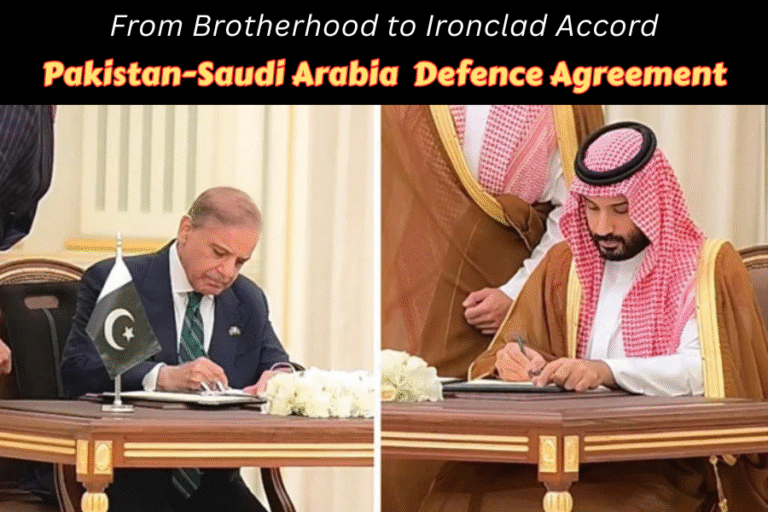(By Khalid Masood)
In June 2025, the United Kingdom marked a historic milestone in its intelligence history with the appointment of Blaise Metreweli as the first woman to lead the Secret Intelligence Service (MI6). Set to assume the role of Chief, codenamed “C,” in October 2025, Metreweli, at 47, succeeds Sir Richard Moore, who steps down after a five-year tenure. A career intelligence officer with a quarter-century of service, Metreweli’s ascent to the helm of MI6—famed through Ian Fleming’s James Bond novels—signals a new era for British espionage. Her expertise in technology, operational experience in the Middle East and Europe, and nuanced approach shaped by anthropology position her as a formidable leader in an age of global instability, cyber warfare, and geopolitical rivalries. This article traces Metreweli’s journey, explores her strategic vision, and assesses the significance of her appointment as MI6 navigates unprecedented threats from Russia, China, and beyond.
A Trailblazer’s Path: From Cambridge to Vauxhall Cross
Blaise Metreweli’s journey to MI6’s pinnacle began at Pembroke College, Cambridge, where she studied social anthropology, a discipline that honed her understanding of human behavior—a vital skill for intelligence work. In 1997, she rowed for Cambridge’s women’s team, triumphing in the prestigious Boat Race against Oxford, showcasing the discipline and teamwork that would define her career. Joining MI6 in 1999 as a case officer, Metreweli embarked on a path of operational excellence, spending much of her 25-year career in the Middle East and Europe. Her fieldwork, though shrouded in secrecy, involved running agents and countering threats, earning her a reputation as a “highly accomplished” officer, per outgoing chief Sir Richard Moore. In 2024, she was awarded the Companion of the Order of St Michael and St George (CMG) in the King’s Birthday Honours for her contributions to British foreign policy, a testament to her impact.
A Career Forged in MI6 and MI5: Operational and Technological Expertise
Metreweli’s career spans both MI6, the UK’s foreign intelligence service, and MI5, its domestic counterpart, reflecting her versatility. She held director-level roles in MI5, leading operations against anti-state activities and safeguarding national infrastructure. Her return to MI6 saw her rise to Director General “Q,” a role overseeing technology and innovation, akin to the fictional Q in James Bond films who equips 007 with cutting-edge gadgets. As “Q,” Metreweli has driven MI6’s adaptation to digital espionage, developing tools to evade adversaries’ biometric surveillance, such as China’s advanced facial recognition systems. Her technological foresight, praised by Foreign Secretary David Lammy as “ideal” for tackling cyber threats, positions her to lead MI6 in an era where “technology is power,” per Prime Minister Keir Starmer.
Breaking the Glass Ceiling: A Historic Appointment
Metreweli’s appointment as MI6’s 18th Chief, announced on June 15, 2025, by Downing Street, marks the first time a woman will lead the agency in its 116-year history. While MI5 appointed female chiefs—Stella Rimington (1992-1996) and Eliza Manningham-Buller (2002-2007)—and GCHQ named Anne Keast-Butler in 2023, MI6’s top role, known as “C” after its first chief, Captain Mansfield Cumming, remained male-dominated until now. As the only publicly named MI6 officer, accountable to Foreign Secretary David Lammy, Metreweli’s visibility carries symbolic weight. Her selection over rivals, including Dame Barbara Woodward, criticized by some as “too soft on China,” underscores her credentials as a career insider with unimpeachable expertise, per The Telegraph. Experts hailed her as a “progressive shift,” reflecting public enthusiasm for her trailblazing role.
Strategic Vision: Navigating a World of Unprecedented Threats
Metreweli assumes leadership at a time of “global instability and emerging security threats,” as Starmer emphasized. The Israel-Iran conflict, intensified by Israel’s June 2025 airstrikes near Tehran, demands MI6’s focus on Middle Eastern intelligence, where Metreweli’s operational experience is invaluable. Russia’s sabotage campaigns in Europe, coupled with its ongoing war in Ukraine, pose another challenge, with MI6 collaborating with the CIA to disrupt Kremlin operations, per Sir Richard Moore’s 2024 Financial Times op-ed. China’s rise as the “main intelligence and geopolitical challenge of the century,” per Moore and CIA’s William Burns, requires MI6 to counter cyber espionage and influence campaigns, areas where Metreweli’s technological acumen shines. In a 2021 MI5 interview as “Director K,” she described threats as “diverse,” from counter-assassination to protecting sensitive technology, signaling her holistic approach to national security.
Technology as Power: Redefining Espionage in the Digital Age
As Director General “Q,” Metreweli has been MI6’s foremost thinker on technology, a role critical in an era where intelligence is increasingly gathered online and from space. Her division develops tools to shield agents’ identities from hostile surveillance, such as China’s biometric systems, and counters cyberattacks targeting UK infrastructure. In a 2021 interview, she warned of China’s “amazing opportunities and threats” and Russia’s “serious” state activities. Her appointment reflects MI6’s pivot to digital innovation, as traditional spycraft contends with hackers and spy ships probing British waters, per Starmer. Experts emphasized her dual expertise in “professional spy skills” and “digital age” challenges, positioning her to modernize MI6 while preserving its human intelligence core.
A Nuanced Leader: Anthropology and Intelligence
Metreweli’s anthropology background, studied at Cambridge’s Pembroke College—also alma mater to former MI6 chief Sir Richard Dearlove—shapes her leadership. Her 2021 remark, “Understanding human behavior is a vital skill for any successful intelligence officer,” underscores her approach to cross-cultural engagement. This perspective likely informed her Middle East operations, navigating complex tribal and political dynamics, and her European roles, countering Russian influence. Her rowing experience, demanding precision and teamwork, mirrors the collaborative ethos she brings to MI6, where she will lead alongside MI5 and GCHQ to protect British interests. Colleagues describe her as a “fine role model,” per Sir Richard Moore, whose praise as an “outstanding ‘C’” reflects her peer respect.
Challenges Ahead: Global Crises and Domestic Scrutiny
Metreweli’s tenure begins amidst deepening international crises. The Israel-Iran war, with Iran’s retaliatory strikes on Israeli targets, requires MI6 to provide actionable intelligence to support UK calls for de-escalation, a priority Moore and Burns advocated in 2024. Russia’s European sabotage, including cyberattacks, demands robust counterintelligence, while China’s cyber warfare and espionage target UK technology. Domestically, Metreweli faces scrutiny over MI6’s diversity and transparency, with Moore’s 2023 pledge to avoid all-male shortlists now realized. The £600 million boost to UK intelligence funding, announced by Starmer, equips her to tackle these threats, but public expectations demand results. Her ability to balance covert operations with public accountability as “C” will define her legacy.
A Cultural Milestone: Life Imitating Art
Metreweli’s appointment evokes comparisons to Judi Dench’s “M” in the James Bond franchise, a fictional female MI6 chief from 1995’s GoldenEye to 2015’s Spectre. Unlike “M,” Metreweli is “C,” signing correspondence in green ink per tradition. The Daily Mail noted that while Bond’s creator Ian Fleming dismissed women in espionage, female chiefs now lead MI5, GCHQ, and MI6, defying stereotypes. Metreweli’s real-world role, blending technology and fieldwork, surpasses fiction, as she navigates threats Fleming could scarcely imagine. Her appointment, celebrated on X by historians like @DrHelenFry for highlighting women’s intelligence contributions, marks a cultural shift, inspiring future generations in a field long cloaked in secrecy.
Conclusion: A Leader for a Turbulent Era
Blaise Metreweli’s historic appointment as MI6’s first female Chief heralds a new chapter for British intelligence. From her Cambridge anthropology roots to her rowing triumphs, from Middle East operations to technological innovation, Metreweli embodies the resilience and adaptability MI6 demands. As “C,” she inherits a world of unprecedented threats—Israel-Iran tensions, Russian sabotage, Chinese cyber warfare—yet her strategic vision, grounded in human insight and digital prowess, equips her to lead. Her appointment, lauded by Starmer, Lammy, and Moore, reflects MI6’s evolution, breaking barriers while reinforcing its mission to keep Britain safe. As Metreweli steps into Vauxhall Cross in October 2025, she carries the weight of history and the promise of progress, a beacon for espionage in a turbulent age.







